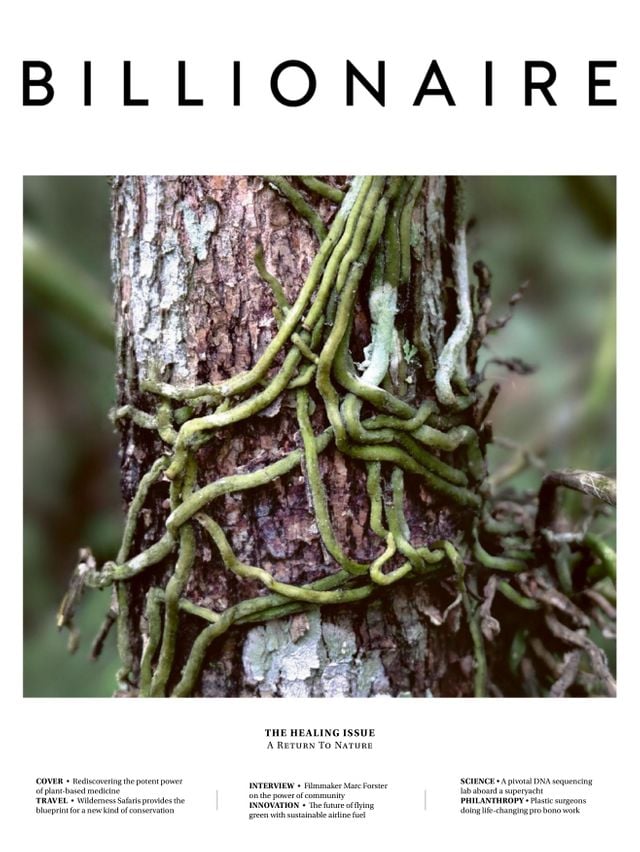Out of Debt

People in the US suffer from a staggering medical debt burden; this charity is trying to abolish it.

In their first career, Jerry Ashton and Craig Antico were debt collectors, and successful ones at that.
“I never liked the debt-collection business,” says Antico in a Freethink interview. “But I was in a family business, and ended up starting to make money early, and then it was so hard to not make money anymore, so I stayed in it.”
It was the 2011 Occupy Wall Street protest movement, centred around social inequality and corporate greed, that presented the opportunity to do something better. Ashton, a child of the 1960s, left his office and joined the protests to see what it was all about. “I decided I wanted to search for the heroes, to find the people who would make a difference.”
When the protestors realised there was a debt collector in their midst, they asked Ashton to collaborate on a crowdfunding effort to raise US$50,000 to purchase US$1 million of defaulted debt, and abolish it. The plan was called the Rolling Jubilee.
Ashton called Antico, and together the pair worked with Occupy. They were able to well exceed the target and raise US$700,000, which enabled the debt collectors to abolish over US$40 million in medical, student and payday loan debt.
After Occupy Wall Street moved on to other projects, Antico and Ashton remained “kinda hooked”. In 2014 they launched the non-profit RIP Medical Debt, a charity focused on the elimination of personal medical debt in the US. The NGO rose to national prominence on an episode of HBO’s Last Week Tonight with John Oliver in which RIP facilitated the abolishment of US$15 million in medical debt.

To date, RIP has acquired — and abolished — over US$7 billion of medical debt, helping over four million families. RIP purchases debts for a fraction of their face value in bundled portfolios and partners with individuals, faith-based organisations, government, foundations and corporations to empower donors by converting every dollar contributed into US$100 of medical debt relief on average. RIP also partners with hospitals, health systems and physician groups to acquire medical debt for abolishment.
The need for such a charity has never been more pressing. The Kaiser Family Foundation estimates that there is at least US$195 billion-worth of medical debt (despite over 90 percent of US citizens being insured) and Kaiser Health News estimates there are 100 million people in the US with medical debt. Medical debt is also undeniably an equality issue, with Black and Hispanic adults respectively 50 percent and 35 percent more likely to have medical debt compared to white adults. As of 2021, a staggering 58 percent of debts recorded in collections were for a medical bill, according to the Consumer Financial Protection Bureau.
“The problem of medical debt in the US is the result of a broken system,” says Allison Sesso, executive director of RIP Medical Debt, in an interview with impact investing network TBLI. “You and I are one accident, or one illness, away from being destroyed financially.”
Sesso explains that in the US, governments don’t pay for medical care unless you’re below the poverty line. “So, unless you’re really poor, you can very quickly end up with medical debt.”
Many people have health insurance, which, if they use, they then cannot afford the high deductibles. Hospitals and debt collectors pursue the debt, putting a lien on a home or a car or garnishing wages, which then impacts on a credit rating.
“People feel a real sense of mental anguish because of this debt, it undermines their overall well-being. What we are seeing in the US, is that the medical debt itself is creating an ill-health situation, as it impacts people’s mental health, and they also avoid care that they need when they’re sick. People will literally refuse to go in an ambulance and call an Uber instead, because it is cheaper. We’re putting financial pain onto people who need basic healthcare — it should be a right, but in the US it is not.”
RIP’s model mimics for-profit debt buyers by using fundraised dollars to purchase medical debt in large, bundled portfolios for pennies on the dollar. One dollar donated erases an average of $100 of medical debt. Prior to RIP’s purchase, many of these bills passed through months or years of collection. Others are purchased or donated directly from hospitals and doctors’ groups. Once RIP owns the debt, it notifies the thousands of individuals whose debt they purchased that they are free of any obligation to pay, and removing any negative credit marks associated with the debt.
RIP Medical Debt has attracted gifts from major corporations, such as WeTransfer and Headspace, which teamed up to abolish US$30 million of medical debt in Los Angeles. Nomi Health recently erased US$225 million of medical debt in collaboration with RIP.

Major philanthropists, including MacKenzie Scott, are also backing the cause. In December 2020, in the midst of her post-divorce giving spree, Scott donated US$50 million to RIP Medical Debt. Last year, she gave it another US$30 million. She had been impressed by how it spent her first gift, hiring an anthropologist to interface with constituents and track thematic trends in the stories of medical debtors, pilot community-based collaborations with established local partners to source qualifying medical debt and create lasting policy change.
Half of the US$30 million grant will immediately be available as seed money for a national 1:1 corporate match programme for businesses interested in abolishing up to US$3 billion in medical debt, who should apply before the end of the first quarter of 2023.
“People are frustrated at politicians,” says Sesso. “Through the generosity of donors, RIP provides the ability to produce high-volume debt relief, reducing mental stress for millions.”
This article originally appeared Billionaire's Healing Issue, Winter 2022/23. To subscribe contact









